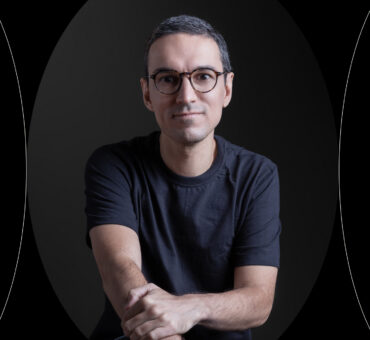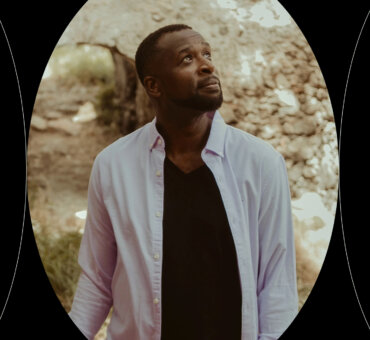We were talking to an artist friend of ours a while ago, a guy known for a very specific style of work, and we asked him how he developed his voice. How hard was it? “You know what’s funny?” he said. “It was only when I stopped trying so hard, stopped stressing out about it, that my voice really broke through.” Which basically sums up what’s so confusing about developing your voice as an artist. It seems to be both effortless and impossible. And we think that’s because when we talk about “voice,” what we’re really talking about is honesty. When someone tells you that you’ve “found your voice,” what they’re really saying is you’ve found yourself — and how the heck do you go about doing that?

DON’T PANIC
You can’t force your voice. You come to it eventually, often by accident, while focusing on other things. It’s like David Foster Wallace says: You end up becoming yourself. In fact, it often seems that not focusing on developing your voice is the best way to develop it. “Instead of trying to push yourself to evolve, it’s better to forget yourself and appreciate what’s going on in your world,” Carissa Gallo of Sea Chant told us. “Forgetting yourself is how you evolve.” Like all sage, counterintuitive advice, the first step to finding your voice is to stop worrying about finding it.
To find your voice, you have to let go of what you want your voice to be.
THE VOICE YOU HAVE MIGHT NOT BE THE VOICE YOU WANT
It’s easy to fall in love with the voice we want and spend a lot of time fighting against what our voice actually is. Usually this results in increasingly crushing creative anxiety. Overwhelming feelings of inadequacy. Stomachaches. That’s because you’re forcing it. You’re faking it. It’s like telling yourself to be outgoing when you’re naturally shy. To find your voice, you have to let go of what you want your voice to be. Because your voice isn’t something you make; it’s something you discover. You have very little control over what it is.
STOP IDOLIZING YOUR OLD WORK
It’s easy to let other people define your voice for you, to take their praise as validation. We think, They like it! I guess this is the type of work I should be doing! But finding your voice is less about making work that other people like and more about making work that is meaningful to you. The more we idolize our past successes, the more it distorts our voice. We talked about this recently with our friend, and Musicbed composer, AJ Hochhalter. After gaining a huge amount of success and notoriety early on his career (for his work on the film Blood Brother), AJ found himself floundering, trying to re-create his past success. “It made me idolize the older stuff I had written,” AJ told us. “I would use that as a measuring stick. It’s very hard to climb out of that when you feel like you’ve already done something and you’re not ever going to be able to do it again. It’s hard to just get started.”
Just like we need to learn to brush off failures, we also need to learn to brush off success. Both are equally disorienting. And both will pollute your voice.

FOCUS ON SUBSTANCE
Voice isn’t just about style. It’s very much about substance. What types of stories are you fascinated by? How do you feel about the world? How are you dealing with being alive? When you find the substance of what you want to talk about, the style in which you talk about it usually isn’t far behind. Pay attention to what gets you worked up, what makes you feel emotional, what fascinates you. Get to know what it feels like to honestly, viscerally, intellectually resonate with something — it will lead you where you’re supposed to be.
ACT NATURAL
Maybe our point here can best be summed up by this Allen Ginsberg quote. He’s speaking about literature, but we believe it applies to creativity of all kinds:
The hypocrisy of literature has been … there’s supposed to be formal literature, which is supposed to be different from — in subject, in diction and even in organization from our quotidian inspired lives. It’s also like in Whitman, “I find no fat sweeter than that which sticks to my own bones,” that is to say the self-confidence of someone who knows that he’s really alive, and that his existence is just as good as any other subject matter.

What Ginsberg is talking about here is letting go of everything you think your work is supposed to be and giving yourself the freedom to create from (and be inspired by) your actual self and your actual life. In order to speak in your true voice, you must first have confidence that your experience of the world is something worth talking about. (It is.)
Developing your voice doesn’t always mean you end up with some flashy “signature style” à la Wes Anderson or Quentin Tarantino. More than anything, it’s just about telling the truth in your work — and telling it in your own words. It’s about being that kid in class who asks the dumb question everyone else was too afraid to ask. It’s about having confidence in your experience and understanding of the world — not that they’re correct, but they are worth talking about. Your voice is inside of you already. You’ll find it.






















































































